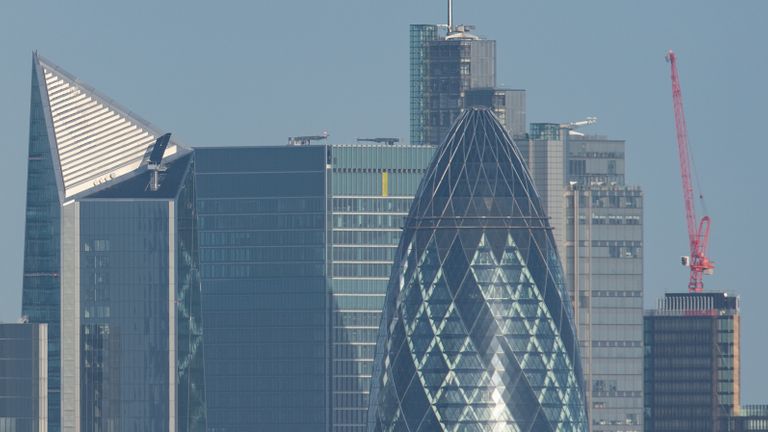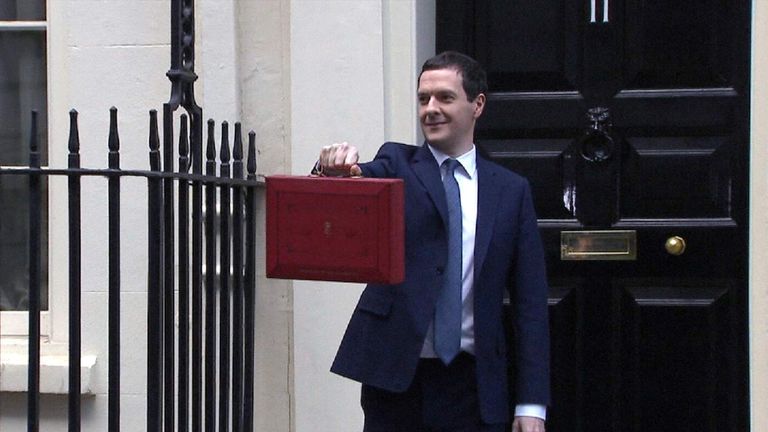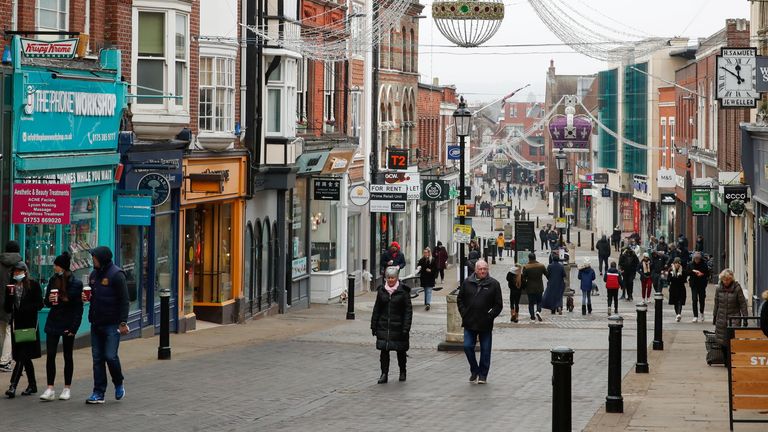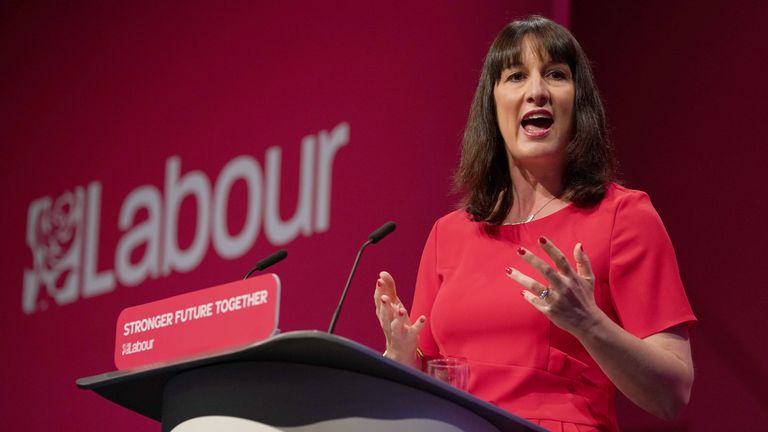What do businesses want out of Rishi Sunak’s budget?
It is tempting to speculate that, if asked what they wanted from Rishi Sunak’s budget next week, the typical business leader would request nothing more than a repeal of the chancellor’s most recent business-unfriendly measures.
These include the hike in corporation tax from 19% to 25% due in April 2023, announced in his March budget, as well as the planned 1.25% hike in the rate weof dividend tax and employers’ national insurance contributions announced last month.
Failing that, most business leaders would probably settle for the chancellor declaring “I propose no further changes to taxation or regulation for the rest of this parliament” before promptly sitting back down.
The constant drizzle of higher taxes and more regulation, overlaid with the stress of managing their businesses through the pandemic and now the supply chain disruption caused by both COVID-19 and Brexit, has left many exhausted.
The budget, however, ceased many years ago to be a straightforward fiscal event and is now predominantly a political event.
Accordingly, next Wednesday will inevitably see an hour or so of announcements, aimed at catching the eye of voters.
On that basis, what can the business world hope for?
The CBI, which under its new director-general Tony Danker has been trying to patch up a relationship with the government that was damaged by its campaign against Brexit five years ago, would like to see more generous treatment of investment allowances after 2023.
Alongside his hike in corporation tax rates, Mr Sunak announced a so-called “super-deduction” for the 2021-22 and 2022-23 tax years, allowing companies to cut their tax bill by up to 25p for every £1 they invest.
It was aimed at encouraging a wave of investment in the two years before the tax hike kicks in.
The CBI would like to see more investment encouraged in this way and it is hard to disagree with the desirability of this move.
Even though the UK economy has bounced back smartly following the easing of COVID restrictions, GDP growth has been held back by weak levels of business investment, so anything remedying that will be seen as very welcome.
Other things high on the CBI’s wish list include reform of the apprenticeship levy introduced by Mr Sunak’s predecessor-but-two, George Osborne, in his budget in July 2015.
There is little doubt that the levy has failed to achieve its objective of getting more school and college leavers into apprenticeships.
Instead, most businesses saw it as another tax, albeit in disguised form.
So the CBI would like to see the levy turned into a “life-long learning levy” that would enable employers to offer more training to employees of all ages, not just school and college leavers, while at the same time extending the government’s recently-announced lifetime skills guarantee.
For its part, the British Chambers of Commerce (BCC) would also like to see more flexibility for people to access training and qualifications, with businesses being given more of a say in helping ensure people to obtain the appropriate training for jobs and skills that are in particular demand.
The BCC is also anxious about the levels of debt that many smaller businesses in particular incurred in trading their way through the pandemic.
As many government-backed loans begin to fall due for payment in coming months, it wants better communication from both banks and government on the terms of such support, as well as continued pressure being brought to bear on larger companies to pay their suppliers promptly.
That is a concern too for the Federation of Small Businesses (FSB), which has also been campaigning recently around the Tax Administration Framework Review currently being carried out by HM Revenue & Customs, aimed at equipping the tax system for the digital age.
The FSB would like to see the threshold at which businesses have to register for VAT raised from VAT taxable turnover of £85,000 to £100,000.
It argues this would lead to more genuine economic development because many small businesses deliberately suppress their activities to ensure they do not cross the threshold and become liable for the tax.
Like the CBI, the FSB would also like to see an expansion of reliefs on investment, arguing this would stimulate more activity and hiring.
In addition, it wants a new three-year rolling taxable income scheme for self-employed workers on the basis that, as many such workers struggle to predict their earnings accurately from one year to the next, a rolling tax average would reduce the risk of businesses going under when confronted with the shock of a sudden and unexpected tax bill.
Top of the wish-list for all three business organisations, though, would be a reform of the running sore that is business rates.
These, based on the consumer prices index rate of inflation of 3.1% for September reported on Wednesday this week, are set to rise by a further £1bn in April next year.
Unfortunately, Mr Sunak looks set to disappoint on this front.
It had been hoped that the government’s long-promised response to its “fundamental review” of business rates would be published alongside the budget, but an authoritative report in the Daily Telegraph, last week, suggested that the chancellor will now not reveal the review’s recommendations.
Nonetheless, some tax experts believe Mr Sunak may announce a move to three-year revaluations from the current five, while there may also some additional rates relief for the retail and hospitality sectors.
But a fundamental overhaul looks unlikely at this stage.
That would be a mistake: arguably the most eye-catching policy announcement in any of the party conferences last month was Labour’s promise to scrap business rates altogether and replace them with what Rachel Reeves, the shadow chancellor, described as a “fairer system”.
Mr Sunak’s reluctance to reform business rates is perhaps understandable when the tax was predicted to rake in £24bn this year.
In normal, pre-pandemic times, the yield was comfortably north of £30bn.
Yet the public finances do afford Mr Sunak some room for manoeuvre.
The latest figures, published on Thursday morning, suggest the government borrowed £44bn less during the first six months of the current tax year than the £152bn predicted by the independent Office for Budget Responsibility (OBR) in March.
So Mr Sunak could certainly afford to offer a little more relief to hard-pressed businesses in retail and hospitality.
Another measure that many entrepreneurs would dearly love to see the chancellor make would be to abolish the hated “lifetime allowance” that caps the amount any individual may save in their pension at £1,073,000 and hits them with a 55% tax rate should they break it.
An allowance of £1,073,000 may sound a lot but only buys an annual income in retirement, protected against inflation, of around £30,000.
When the allowance was first introduced by Gordon Brown, in 2006, the government claimed it would only affect around 5,000 wealthy individuals.
It now promises, on some calculations, to ensnare 1.25 million people – many of them business owners and the self-employed, as well as some public sector workers, particularly doctors and NHS specialists.
Mr Sunak likes to think of himself as someone who simplifies taxes – and a report in The Sunday Times last weekend suggests a reform of alcohol taxation may be announced next week – and sweeping away the allowance would be a piece of tax simplification many business people would welcome.
Unfortunately, as with a sweeping reform of business rates, business people would be unwise to get their hopes up.







